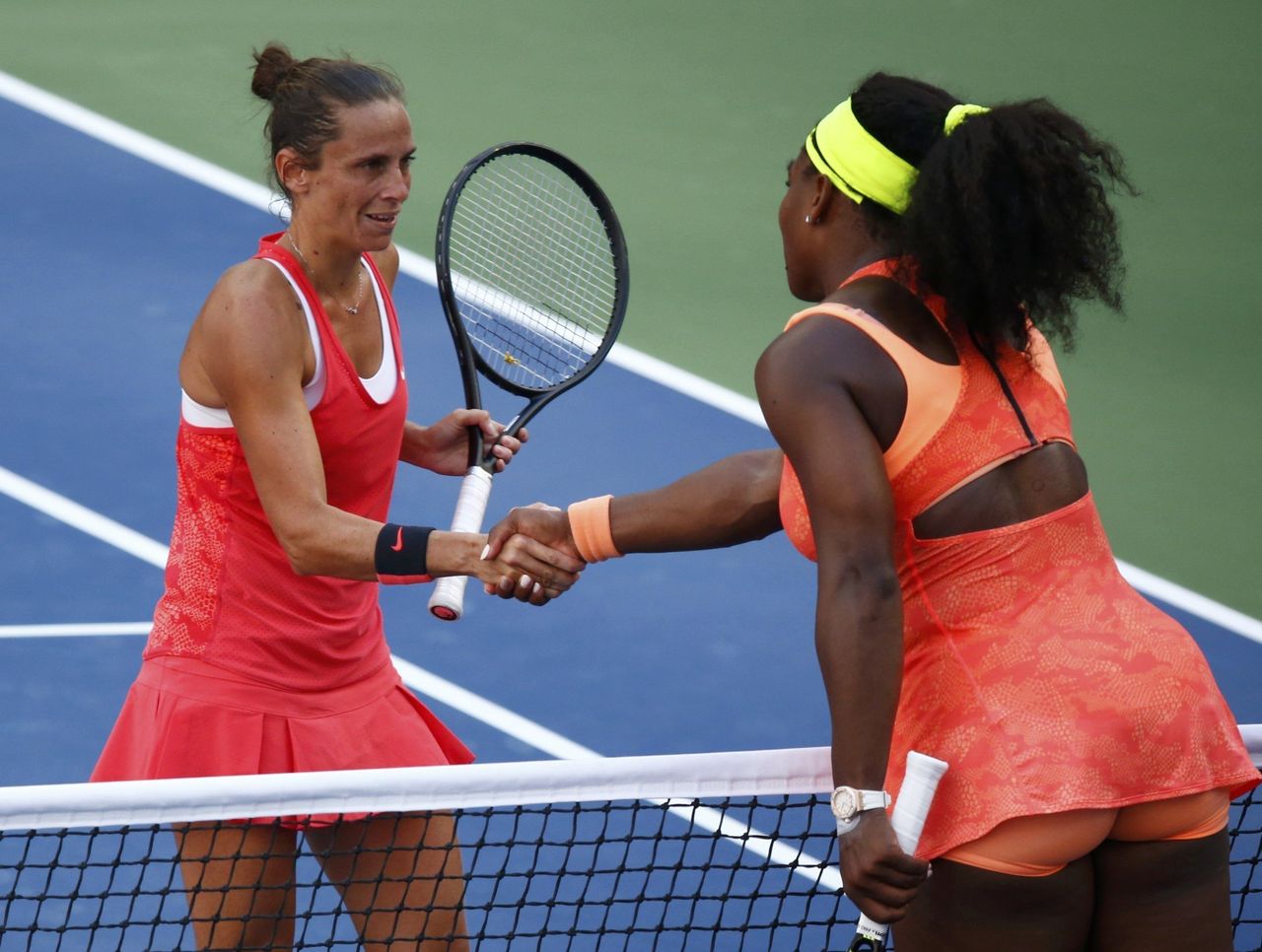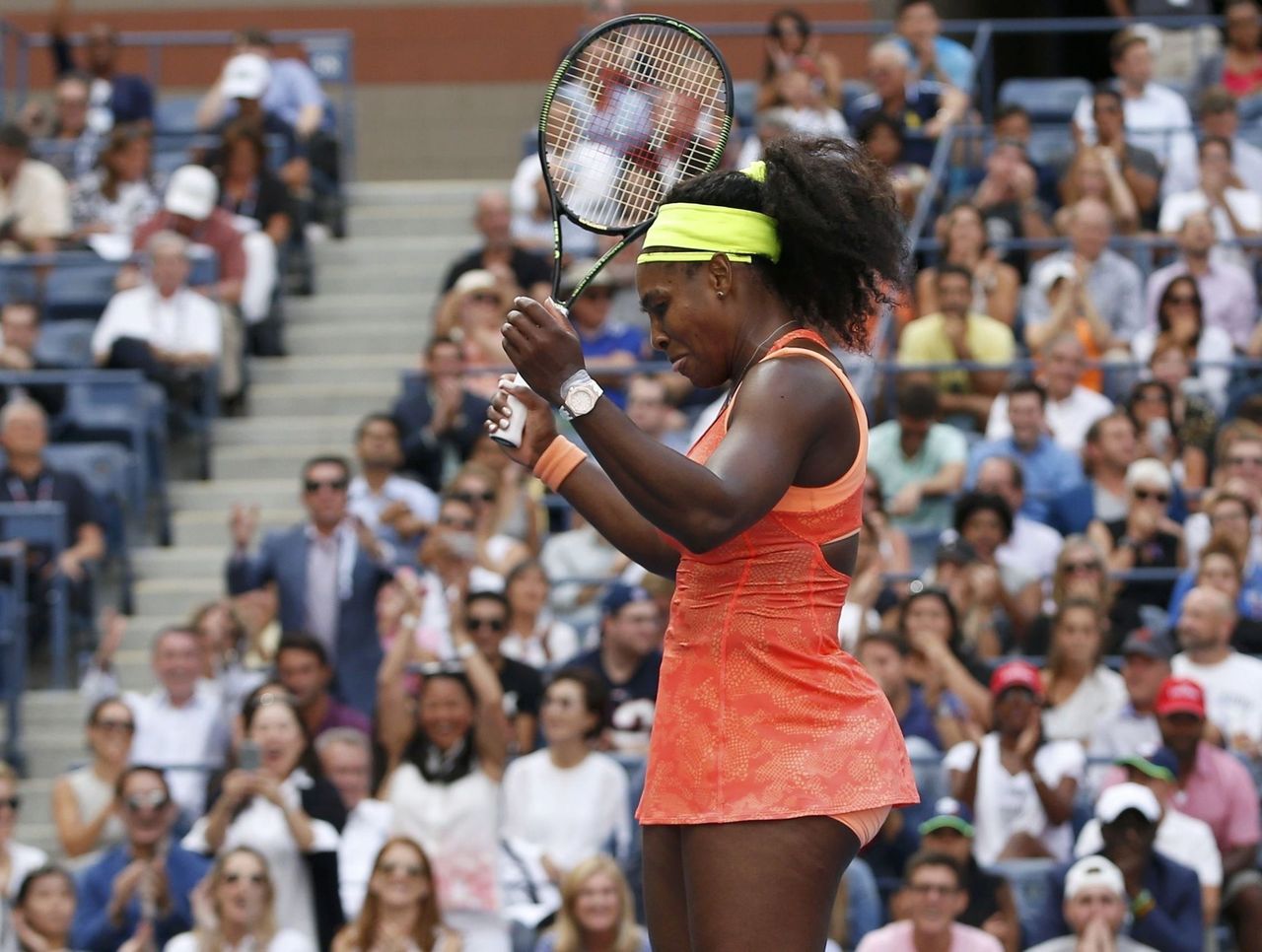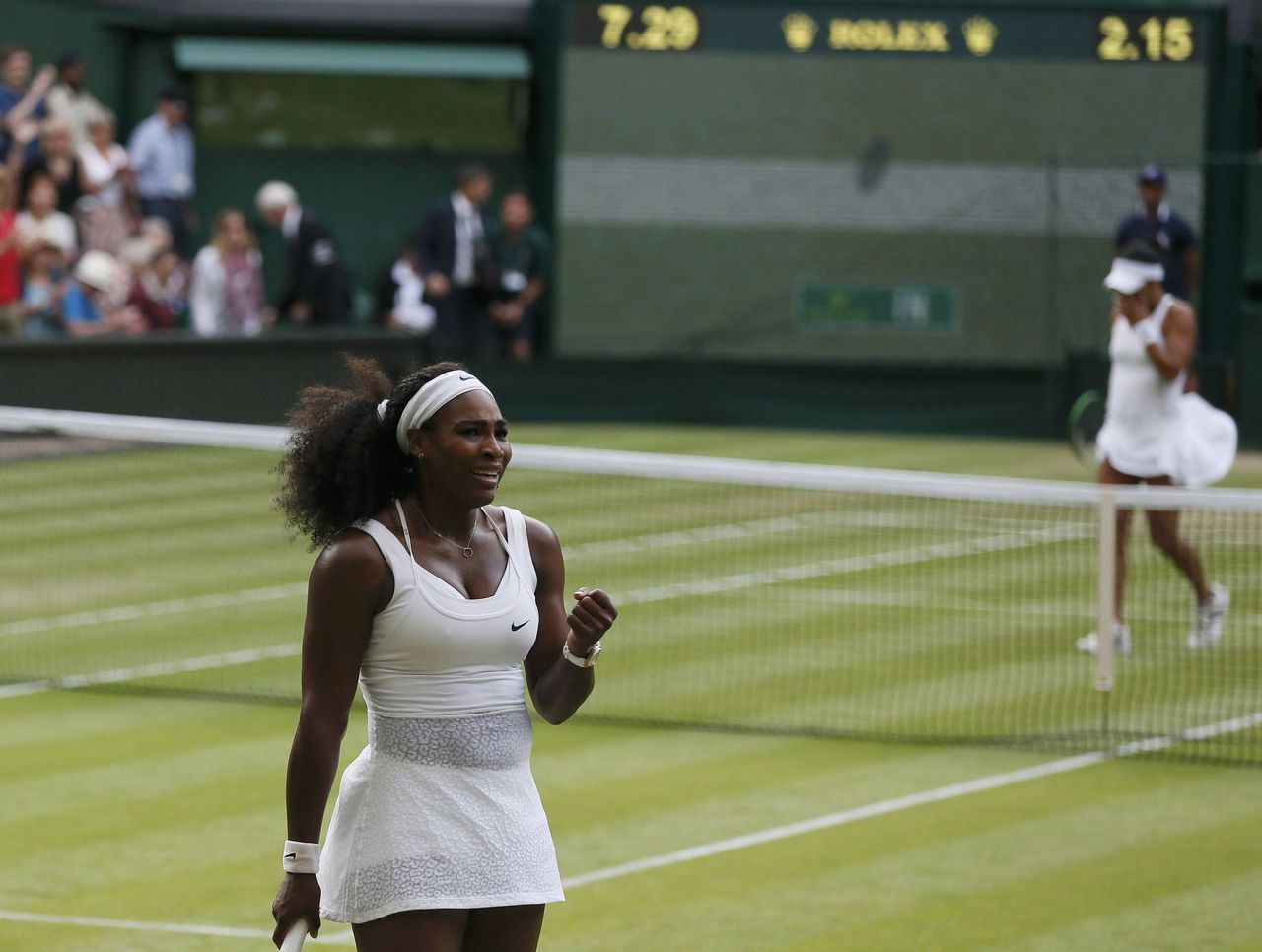Serena Williams lost, and it doesn't change a thing
Serena Williams lost.
Even saying it feels a little off. The words roll awkwardly off the tongue.
It shouldn't feel so unfamiliar, really; she's lost 123 matches in her career. But she'd only done so twice in 2015 before Friday's US Open semifinal, and not once at a major. She'd only ever lost three times in a major semi, and not once since 2009. She was 43-1 lifetime against unseeded opponents at the US Open. She'd won 33 consecutive Grand Slam matches. Two more, and she'd be the first to complete the calendar Slam since Steffi Graf in 1988.
And then, she lost. To Roberta Vinci, of all people: the 43rd-ranked player in the world; a 32-year-old doubles specialist playing in her first career major semi in singles; who'd failed to make it past the third round in eight consecutive majors coming in; who'd failed to take even a set off Serena in four previous meetings.
You could spend days listing the myriad reasons Friday's outcome was improbable. But still Serena lost, because improbable things happen, because everything ends, and because nobody - not even Serena Williams - wins all the time.

The world of pro sports has always had its own internal moral calculus. It's a world that squeezes nuance into the margins, often teaches upside-down lessons, and places a premium on attributes we wouldn't typically think to drill into the heads of younger generations: hyper-competitiveness, single-minded drive, an obsession with legacy, winning and winning and winning above all else.
This is a world, of course, in which Serena has thrived, like few (if any) before her have thrived. She has given the world no choice but to stand up and take notice, of her - a female athlete in a male-dominated athletic landscape, a black woman in a notoriously white sport. She has meant a great deal to a great many people and she has done so precisely because of her competitiveness, her drive, her legacy, and her unparalleled ability to win.
But this world in which she's become so visible, in which she's so visibly thrived, has also threatened to devour her. Her deflating press conference after the loss to Vinci, in which she testily batted away questions about personal disappointment and vehemently denied feeling any pressure, was as disconcerting as anything that happened in the match itself.
Watching Serena lose has never been as unsettling as watching her experience the confusion of defeat; her face expressing profound and terrified disbelief, her body language pervaded by the sense that she can't wrap her head around what's happening, or why - no more than the viewer can. The toll this exacts on her has never seemed more evident than it did Friday. By the time match point rolled around, she looked flat-out tired - of everything. The chase, the expectation, the postulations about her legacy, the meaning attached to her victories and defeats. It made you wonder how anyone could willingly keep putting themselves through it.

It's remarkable enough that she's subjected herself to that world for as long as she has. Just over three years ago, when she was still working her way back into shape following her lengthy absence due to a life-threatening pulmonary embolism, Serena admitted she didn't feel any love for the sport of tennis.
"It's not that I've fallen out of love," she added. "I've actually never liked sports, and I never understood how I became an athlete. I don't like working out; I don't like anything that has to do with working physically."
And yet here she is, still just one major title shy of tying Graf's Open era record. At the time, she'd won 13. She was 30 years old, her career - successful as it was - beset by controversy and scrutiny, peppered with injuries and extended layoffs. Somehow, since then, she's won another eight - more than any active player has won in her entire career (her sister Venus is closest, with seven). Imagine if Richard Williams had set her down a path she'd actually been eager to walk.
This season has perhaps crystallized the contradiction more than any other, even as it's been arguably the most successful of her career. Her tennis has rarely been dazzling, at least not consistently. She's struggled with an elbow injury. She's stumbled and pressed, overthought and overhit. She's gotten tight and fallen behind. Her serve has deserted her.
So many times, her mental fortitude has carried her. It helped carry her three-quarters of the way to a calendar Slam. But her tennis has never looked more onerous, more like work. After winning the French Open - amidst injury and illness, in what she called the most difficult major of her career - she barely stopped to let it sink in.
"I'm already thinking about Wimbledon," she said, just minutes after hoisting the trophy.

She's proven everything anyone could ever hope to prove in one's field, and it's impossible to overstate just how little this one loss changes. It does not affect her legacy or her place in history. It does nothing to change what we already knew she was, which is the greatest women's tennis player of all time. Winning all four majors in succession - for a second time, 13 years after she first did it - does not become a footnote because it didn't happen within the arbitrary confines of the calendar year.
"This will never change who Serena is, even in terms of as a player, whether she does the Grand Slam or not," her coach, Patrick Mouratoglou, said before the tournament. "She's going to beat the record of Steffi, if not at the US Open, then in Australia or Roland Garros. She'll be the greatest of all time anyway now. I'm sure about it, and she has to be sure about it so she can realize not to put so much pressure on her shoulders."
If anything, the loss - and the resultant shock - serves only to reinforce how remarkable her run has been. It reminds those of us who may have forgotten, that she can lose. That she could easily have lost any of the 33 straight major matches she'd won coming in.
One would hope we're past the point of taking Serena for granted, but the sense of inexorability she's evoked this year - in winning as much as she's won, the way she's won - has made it difficult not to. She's going to turn 34 in two weeks. She broke through to win the US Open at 17. She's lived half her life since winning her first major, and she's as dominant now as she's ever been. There's simply no way to contextualize or normalize that.
So it's easy to assume that being the best - being Serena - will simply translate to winning, without the requisite agency attached. It's easy to subconsciously adopt the sentiment radio host Glynn Washington once posited in a sketch about Superman:
"It is not brave to go in a burning building when you do not burn. It ain't brave to get shot when you don't feel bullets."
While she can sometimes seem unassailable, Serena is not impervious to bullets. She is not impervious to anything - not pressure, not anxiety, not even an unassuming, unseeded opponent in a Grand Slam semifinal.
Serena Williams is many things that none of us will ever be. But it helps to be reminded every now and then that she is not, in fact, superhuman.